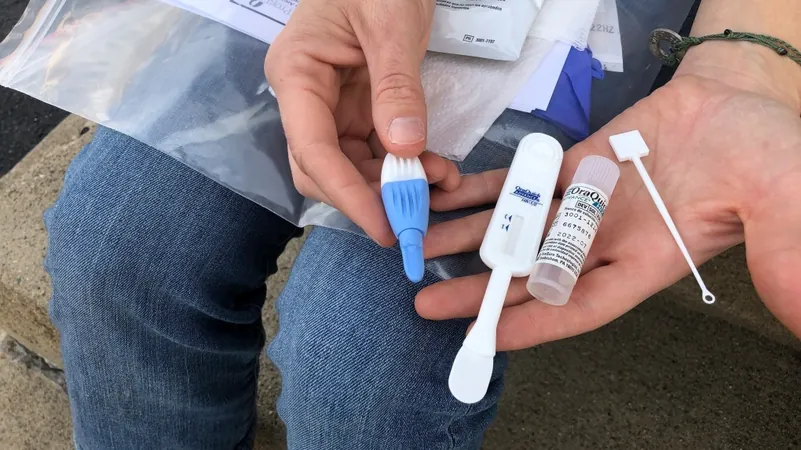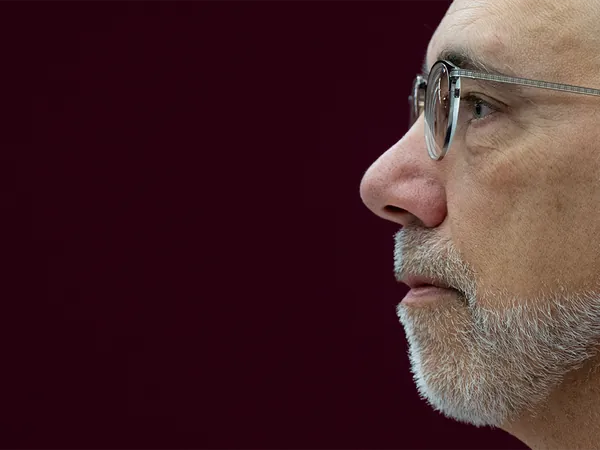
HIV and STI Screening Week Kicks Off: Why You Can’t Afford to Ignore Testing Anymore!
2024-11-17
Author: Michael
Introduction
As International Screening Week begins this Monday, awareness about the critical need for accessible screening for HIV and other sexually transmitted and blood-borne infections (STBBIs) takes center stage. Despite advancements, many individuals in Quebec and across the globe still face significant barriers to accessing these life-saving tests.
Campaign Overview
Launched in 2020 amid the COVID-19 pandemic, this international campaign spans over 50 countries and aims to address disruptions in testing services during lockdowns. The Coalition des organismes communautaires québécois de lutte contre le sida (COCQ-SIDA) is actively participating in its fourth year, emphasizing that while one week isn't enough to identify every undetected case of HIV, it’s a crucial opportunity to promote the ease and importance of getting tested.
Empowering Communities
"We want to empower people with the knowledge that getting tested is simple and community organizations can facilitate this vital process," stated Ken Monteith, Executive Director of COCQ-SIDA. The current push underlines the necessity for community workers to be allowed to conduct rapid tests for HIV and other STBBIs, potentially acting as an entry point for those reluctant to engage with traditional healthcare systems.
Concerning Statistics
The statistics are alarming: in 2020, the number of HIV tests dropped by 18% compared to 2019, leading to a concerning rise in new cases. Recent Quebec figures reveal that 78% of new HIV diagnoses were made during the initial screening. Monteith highlights a worrying trend where many individuals identified were late to seek testing—having contracted the virus years prior without knowledge, thus unknowingly perpetuating its spread.
Hope Through Treatment
Despite this grim picture, there’s hope. Monteith emphasizes that with timely screening and adequate treatment, those living with HIV can maintain long, healthy lives. However, efforts to broaden access to testing remain overshadowed by deep-rooted stigmas surrounding STIs and sexuality.
Inequities in Access
Sexologist Audrey Morabito points out the inequities in access to testing facilities. "Due to existing taboos, many people are unaware of where to seek testing," she explains. Routine screening is hardly offered during medical appointments, a gap in care that can prevent timely intervention. Morabito urges for systematic testing to be integrated into general practices, especially as STIs such as syphilis and gonorrhea have seen a distressing rise, affecting not just youth, but increasingly older adults as well.
Self-Testing Initiatives
One ray of hope for improving access to HIV testing had been the government’s initiative to provide self-testing kits, which was introduced at the 2022 International AIDS Conference. Unfortunately, this program ended last March. COCQ-SIDA is now advocating for the reinstatement of this initiative as they seek to dismantle barriers to testing.
Destigmatizing Conversations
Monteith encapsulates the sentiment that conversations around sexuality and STIs remain fraught with stigma. "It’s essential to foster open dialogue around these often-taboo subjects. Only then can we destigmatize testing and effectively work to halt the spread of HIV."
Conclusion
As International Screening Week unfolds, it serves as a potent reminder of the need for accessible testing and the vital role awareness plays in public health. Will you step up and get screened? The lives saved may depend on it!









 Brasil (PT)
Brasil (PT)
 Canada (EN)
Canada (EN)
 Chile (ES)
Chile (ES)
 España (ES)
España (ES)
 France (FR)
France (FR)
 Hong Kong (EN)
Hong Kong (EN)
 Italia (IT)
Italia (IT)
 日本 (JA)
日本 (JA)
 Magyarország (HU)
Magyarország (HU)
 Norge (NO)
Norge (NO)
 Polska (PL)
Polska (PL)
 Schweiz (DE)
Schweiz (DE)
 Singapore (EN)
Singapore (EN)
 Sverige (SV)
Sverige (SV)
 Suomi (FI)
Suomi (FI)
 Türkiye (TR)
Türkiye (TR)